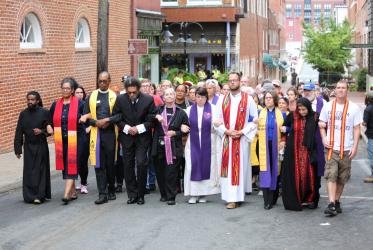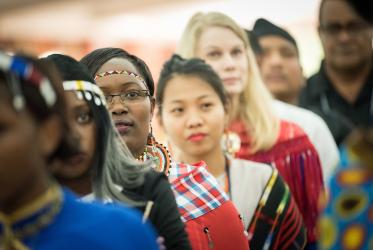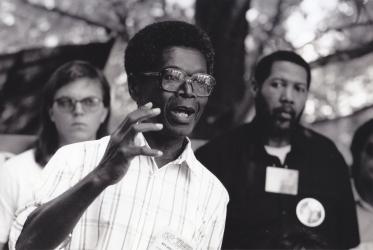A World Council of Churches (WCC) webinar held on 2 December explored the theme “Racism, Xenophobia and Discrimination in the Pacific".
Participants asked challenging questions such as: What is institutional racism? What is unconscious racism?
Rev. James Bhagwan, general secretary of the Pacific Conference of Churches, emphasized the equality among our one human family. “Often people look at the Pacific Islands in a way that expects us to be asking for handouts but we want equal partnership,” he said. "I think that goes back to the institutional racism we find in many organizations.”
Rev. Nikotemo Sopepa, an ordained minister of the Ekalesia Kelisiano Tuvalu (Congregational Christian Church of Tuvalu) currently working with the Council for World Mission, said that racism has become embedded. "We can see the fear that is within the people that generates such name-calling and name-tagging,” said Sopepa. “The most dangerous thing about this is they will call it ‘culture,’ they will call it ‘tradition' and I want to address it as an issue of unconscious racism.”
Tairua Tiaremaohi, who is from Maohi Nui, and lives on the island of Moorea, noted that her homeland is incorrectly called “French Polynesia.” Tiaremaohi, who frequently works with youth, said that “racism, xenophobia, and racial discrimination exist here as they do everywhere else. The biggest challenge is to have sharp eyes to observe what is really happening, where some people do not see.”
This webinar was the last in a series of eight regional webinars exploring the various causes and manifestations of racism, xenophobia, afrophobia and racial discrimination in different parts of the world; identifying common threads across regions; and finding opportunities for collaboration.
“By exploring how racial injustice manifests itself in various parts of the world, these regional webinars have also been an opportunity to identify common challenges and struggles across regions. We hope that what we’ve learnt from these discussions will pave the way for renewed ecumenical commitment and collaboration on how to tackle racial injustice as an ecumenical family,“ said Segma Asfaw, programme executive for the WCC Commission of the Churches on International Affairs.








